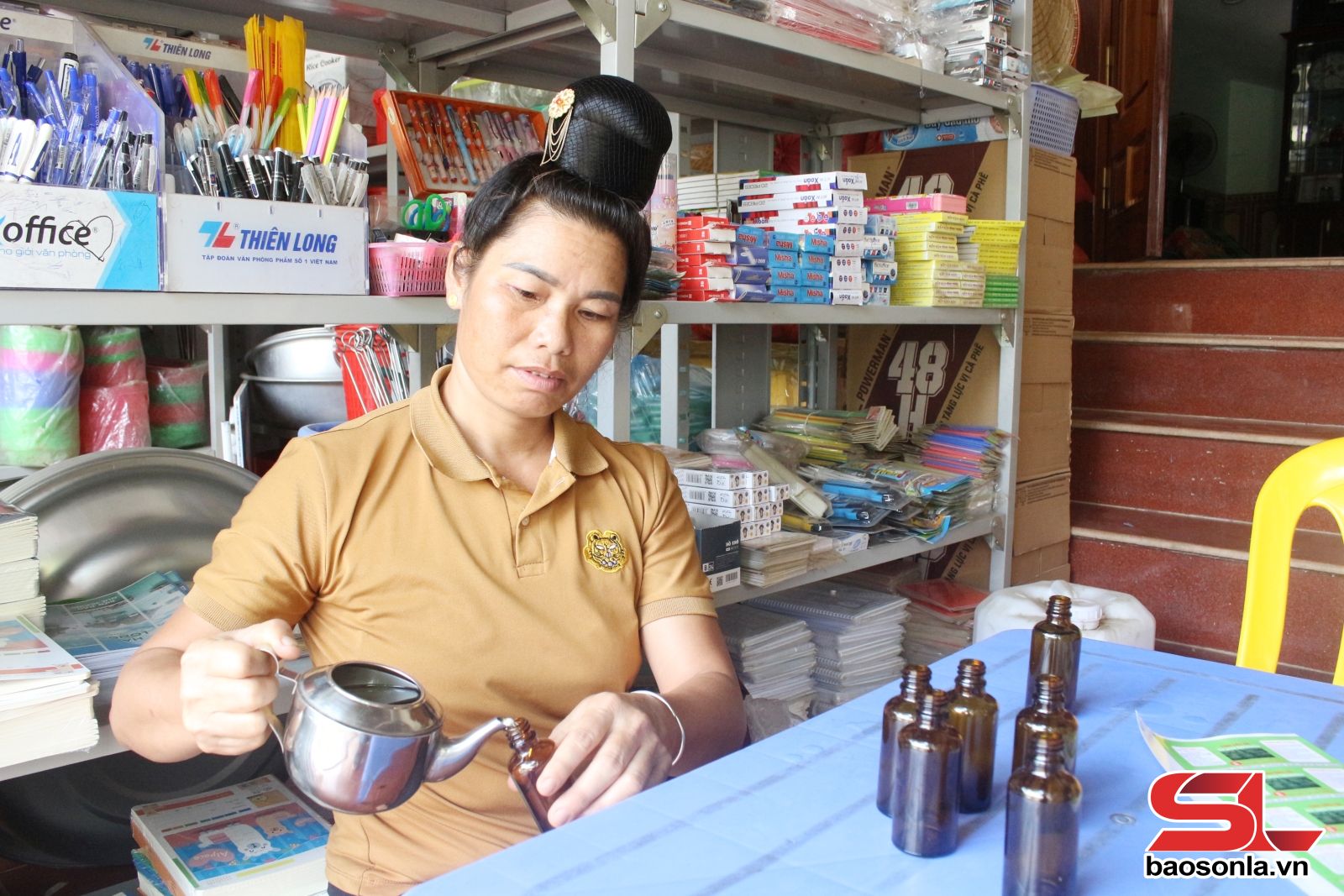
Members of Tu Chau Cooperative package Java citronella essential oil products.
Mr. Nguyen Ngoc Tu, Chairman of the Commune People's Committee, said: The commune has developed practical agricultural economic models, suitable for natural conditions, associated with the application of science and technology to improve efficiency. Thanks to that, people have shifted from small-scale production to commodity production, forming many concentrated farms. Agricultural products are increasingly diverse and of high value. Currently, the commune has 5 3-star OCOP products (Java lemongrass essential oil, sticky rice, fish pieces, Da River fish cakes, fish sausages) and 55 hectares of rice and longan with VietGAP certification.
To increase the value of products, the commune directs specialized agencies to propagate and mobilize people to join together to establish cooperatives, especially in the agricultural sector. The whole commune currently has 41 cooperatives, of which 34 are aquatic cooperatives. The cooperatives are closely linked in production and consumption of agricultural products, creating jobs and stable income for many workers. The average revenue is more than 1 billion VND/cooperative/year, the average income of cooperative members is 45 million VND/year.
As a resettlement commune of Son La hydropower plant with limited production land, Quynh Nhai aims to develop aquaculture and fishing and encourages farmers to choose suitable models. In 2020, Mr. Lo Van Hoc, Phieng Ly village, and 7 members established Tu Chau Cooperative, creating jobs and increasing income for people. The Cooperative currently cultivates 51.3 hectares of sticky rice, 10 hectares of lemongrass and 30 hectares of medicinal herbs under the forest canopy. In 2022, the Cooperative's sticky rice and Java lemongrass essential oil achieved 3-star OCOP certification. Mr. Lo Van Hoc, Director of the Cooperative, said: OCOP certification helps the Cooperative expand production and promote products. The Cooperative's crude essential oil products are currently priced at 350-500 thousand VND/liter, bottled products are 500 thousand - 1 million VND/liter; after deducting expenses, the Cooperative earns a profit of about 300 million VND/year.
About Hoa San village, a highland village in Quynh Nhai commune. This season, the hillsides are covered with green tea, coffee and fruit trees; the sound of laughter is bustling in the harvest season. Mr. Bac Cam Hoan, Party Cell Secretary, Village Chief, said: The village has 126 households, mainly Thai and Mong people. The village management board mobilizes people to convert ineffective corn and cassava areas to grow tea, coffee and fruit trees, currently there are more than 130 hectares. Livestock farming is developed in the direction of goods, the whole village has nearly 3,000 cattle and poultry, 100% of households have moved livestock out from under the floor. Many households earn 150-250 million VND/year from growing tea, coffee and raising livestock, such as the families of Mr. Mua A Tam, Mr. Mua A Phong, Ms. Sung Thi Panh, Mr. Vu A Ca... Currently, the village has only 5 poor households.
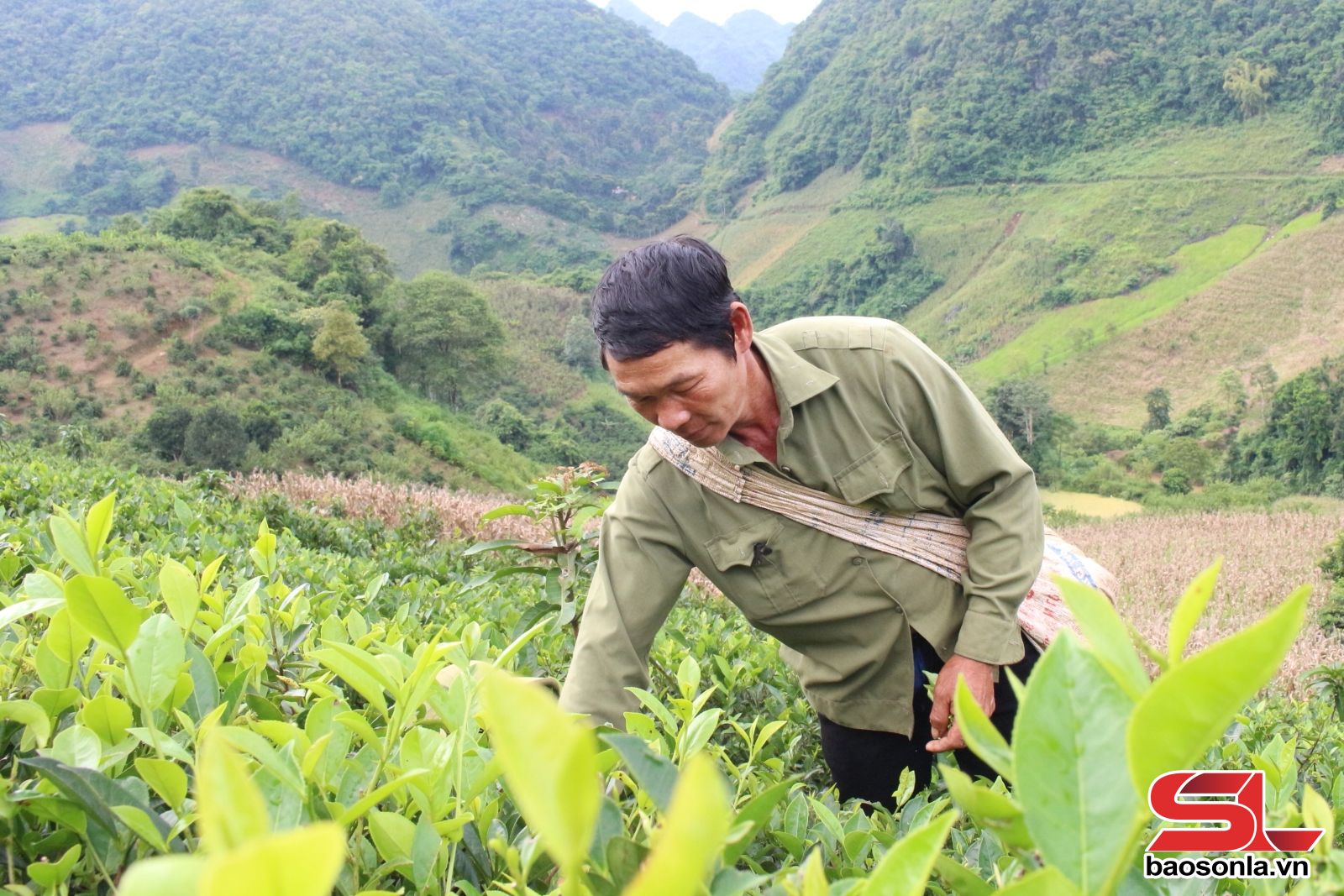
Farmers in Hoa San village, Quynh Nhai commune harvest tea.
In 2010, through the Commune Farmers' Association, Mr. Mua A Tam, Hoa San village borrowed 100 million VND from the Social Policy Bank to invest in planting coffee, tea and macadamia trees. Currently, his family has nearly 2 hectares of coffee, tea and macadamia trees; maintains raising 10 pigs and 2 sows. Mr. Tam shared: The process of developing the model has always received attention from the local government, technical support and finding outlets for the products. Currently, the family's tea products are purchased by the Binh Thuan Production, Business and General Services Cooperative, bringing in an income of more than 200 million VND per year.
Along with that, Quynh Nhai takes advantage of all resources to develop clean livestock, aiming at commodity production. The commune transfers techniques for breed improvement, disease prevention, and utilizes agricultural waste as food. Currently, the commune has 2,110 buffaloes, 9,520 cows, 5,580 goats, 17,000 pigs, 38,000 poultry, and more than 300 hectares of elephant grass for livestock. In addition, the commune develops fruit trees on hillsides, forming commodity production areas linked to the market; converting ineffective tree areas into concentrated fruit trees, integrating capital to improve mixed gardens, orienting crops, and forecasting the market to stabilize output. Up to now, the whole commune has 710 hectares of fruit trees, with an estimated output of 1,750 tons.
The Resolution of the 1st Party Congress of the Commune, term 2025-2030, determined a breakthrough in transforming the agricultural economic structure, focusing on improving the productivity and quality of aquatic products associated with processing and consumption. Mr. Nguyen Ngoc Tu, Chairman of the Commune People's Committee, added: The Commune aims to effectively exploit agricultural land in the direction of intensive farming, increasing the land use coefficient to increase income per unit area; at the same time, invest in producing high-quality seeds, build traceability, attract enterprises to process, pre-process, preserve agricultural products and promote the linkage of "4 houses" in production and consumption.
With synchronous solutions, Quynh Nhai aims to develop sustainable agriculture, increase people's income and create motivation to build new rural areas. By 2030, the commune strives to meet the advanced new rural standards according to the Resolution of the first Party Congress of the commune, term 2025 - 2030.
Source: https://baosonla.vn/kinh-te/khai-thac-loi-the-xay-dung-mo-hinh-nong-nghiep-ben-vung-tfTVDAeHg.html





![[Photo] Solemn opening of the 1st Government Party Congress](https://vphoto.vietnam.vn/thumb/1200x675/vietnam/resource/IMAGE/2025/10/13/1760337945186_ndo_br_img-0787-jpg.webp)


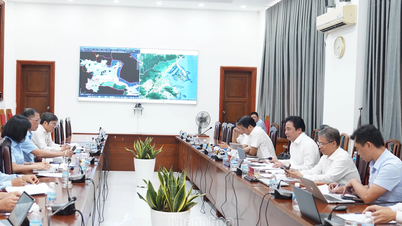

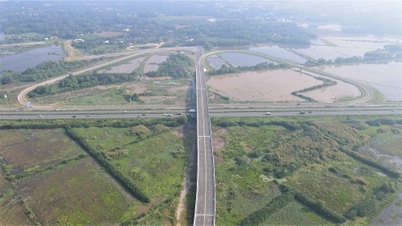



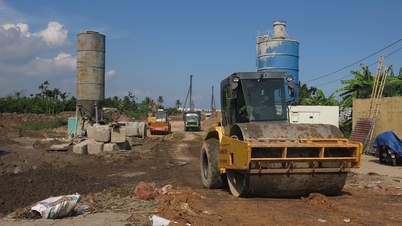

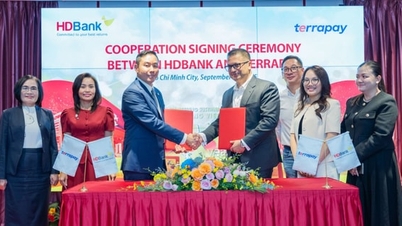

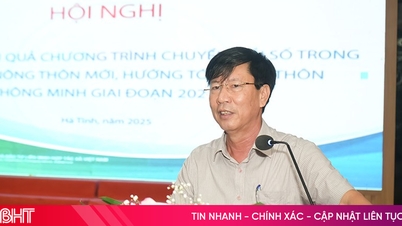





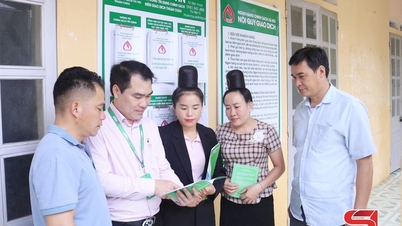
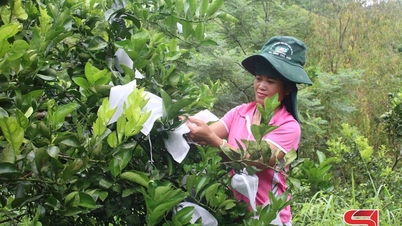
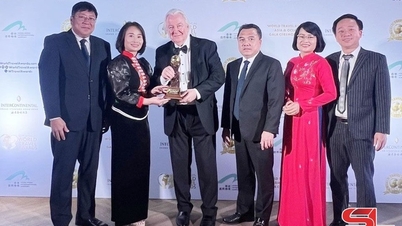
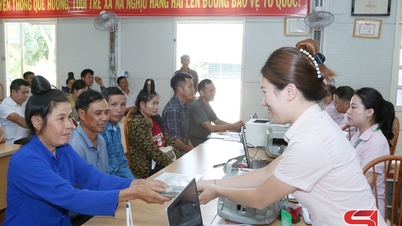



























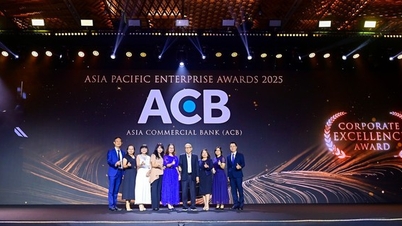







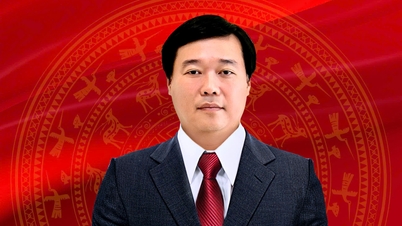

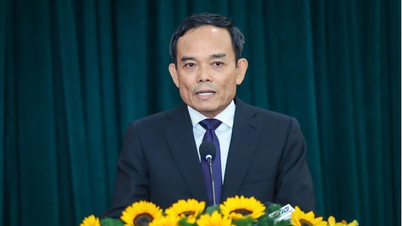



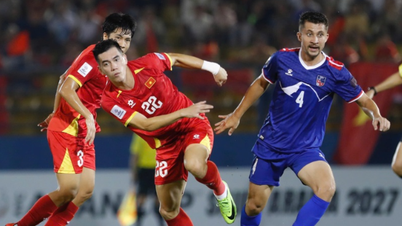

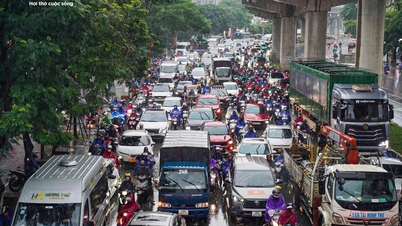


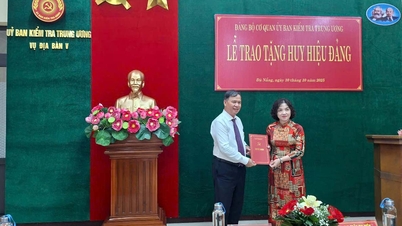

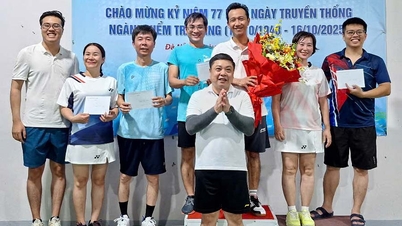
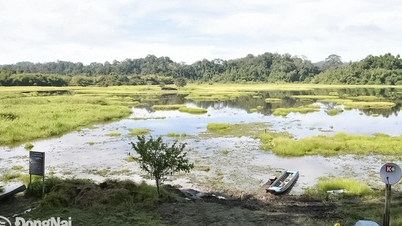



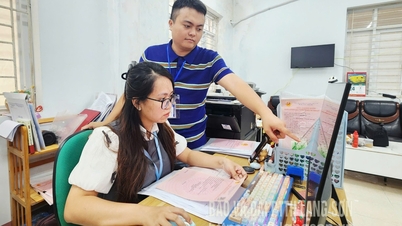

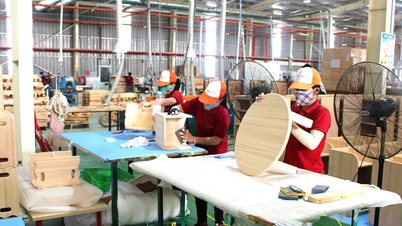

















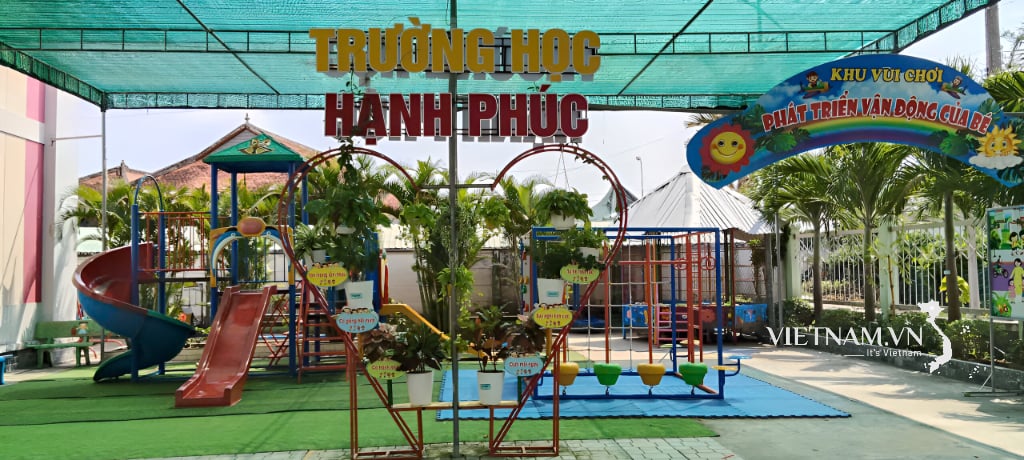



Comment (0)